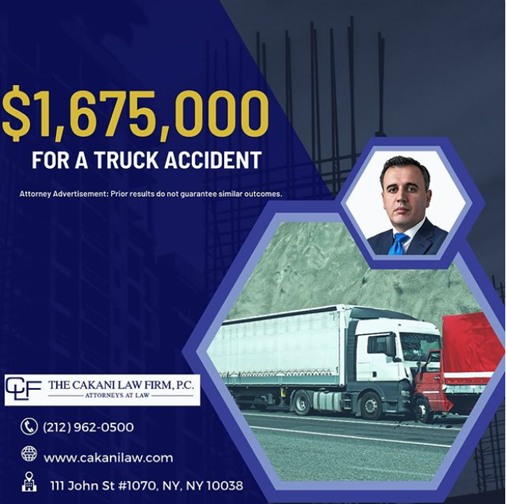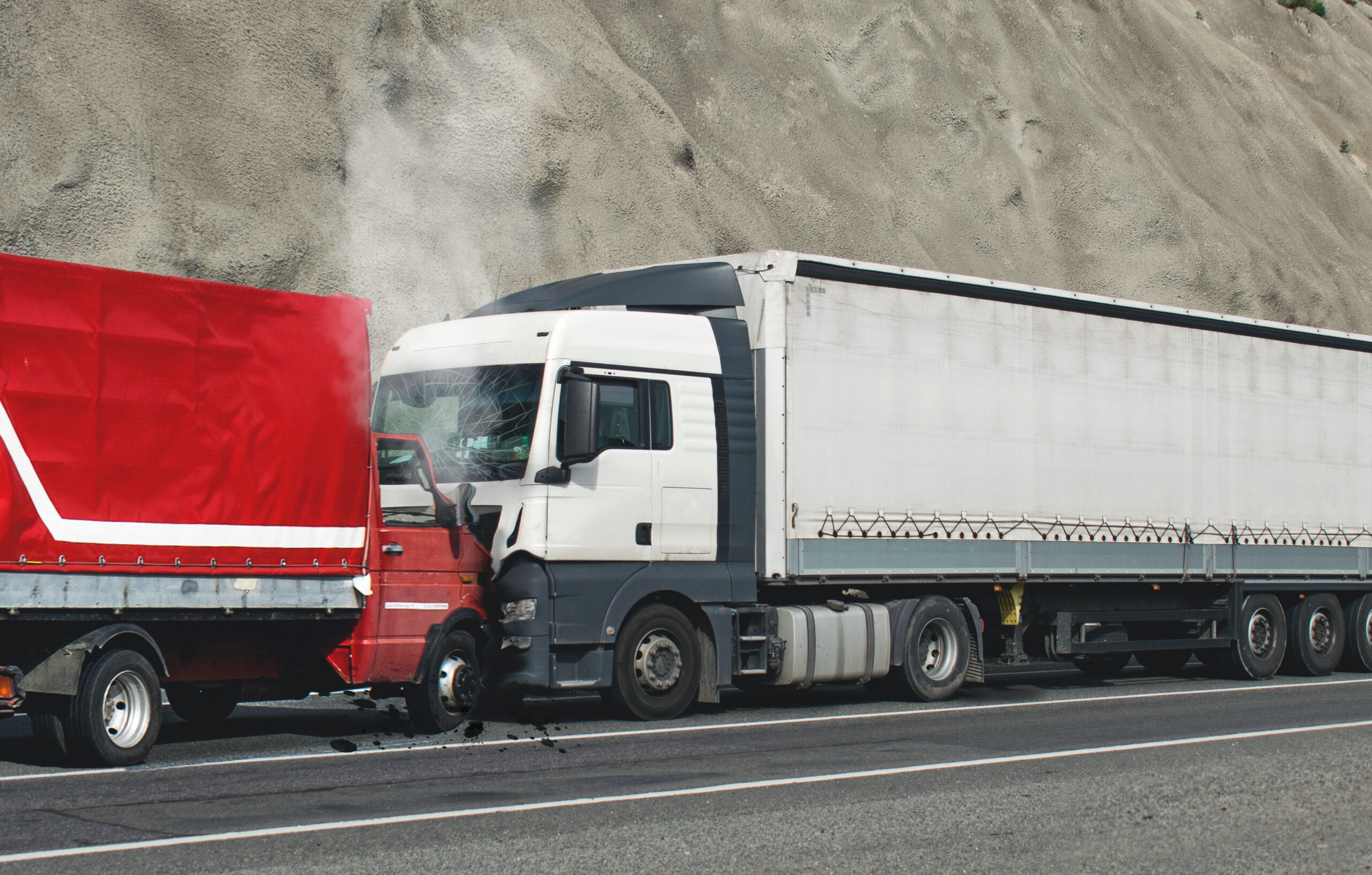Introduction
Sharing the road with massive commercial trucks can be intimidating, even in ideal weather conditions. These behemoths dwarf passenger vehicles and require significantly more stopping distance. But when rain, snow, fog, or high winds roll in, the dangers of sharing the road with a truck escalate dramatically. Reduced visibility, slippery surfaces, and unpredictable winds all conspire to create a perfect storm for devastating truck accidents.
If you’ve been the unfortunate victim of a truck accident during bad weather, especially in New York City’s busy traffic environment, the aftermath can be overwhelming. Medical bills pile up, injuries may prevent you from returning to work, and the emotional toll can be significant. However, you don’t have to navigate this challenging situation alone. Looking for legal counsel from a skilled personal injury attorney experienced in truck accidents can make a world of difference in recovering the compensation you deserve.

How Weather Conditions Contribute to Truck Accidents
Reduced Visibility
Truck accidents caused by poor visibility are a major concern, especially during heavy rain, snow, and fog. These conditions create a pea soup-like environment, significantly reducing a driver’s ability to see the road ahead, surrounding vehicles, and potential hazards. This limited sightline makes it difficult for truck drivers to react in time to sudden stops, lane changes, or pedestrians crossing the road. Additionally, the increased stopping distance required in low visibility situations is often underestimated by drivers, leading to rear-end collisions when visibility is obscured.
Slippery Roads
Rain, snow, and ice are a recipe for disaster on the road, and large trucks are particularly susceptible to the dangers of slick surfaces. When water accumulates or ice forms on the pavement, the road surface becomes incredibly slippery, reducing traction and making it difficult for trucks to maintain control. This lack of traction can lead to dangerous situations like skidding, where the truck’s wheels lose grip and slide uncontrollably. Skidding can quickly turn into a jackknife accident, where the trailer becomes misaligned with the cab, creating a hazardous situation for all vehicles on the road. For tractor-trailers with a high center of gravity, slippery roads also increase the risk of rollovers, especially during sharp turns or sudden maneuvers.
Proper tire maintenance is essential in mitigating these risks. Trucks should be equipped with tires designed for all-weather conditions and have sufficient tread depth to maintain traction on wet or icy surfaces. Neglecting tire maintenance can significantly increase the chances of a weather-related truck accident.
High Winds
Unlike passenger vehicles, large trucks are not exactly aerodynamic marvels. This lack of aerodynamic design makes them particularly vulnerable to strong winds, especially crosswinds. Wind gusts can push a truck sideways, causing it to veer out of its lane or even completely off the road. This is especially dangerous on bridges or open stretches of highway, where wind speeds tend to be higher. High winds can also be a factor in jackknife accidents, where the force of the wind pushes the trailer against the cab, causing it to fold in on itself.
To minimize the dangers of high winds, truck drivers must change their speed and driving style accordingly. Holding the steering wheel firmly and avoiding sudden maneuvers are crucial for maintaining control in windy conditions. When encountering strong winds, experienced drivers will often slow down significantly and increase following distances to allow for more reaction time if a gust buffets the truck.
Other Weather Hazards
While the aforementioned weather conditions are the most common culprits in truck accidents, other weather hazards can also play a role. Hailstorms can create slick road conditions similar to rain or ice. Flooding can turn roads into impassable rivers, leading to accidents as drivers attempt to navigate flooded areas. Extreme heat can cause road surfaces to buckle or melt, creating uneven terrain that can be hazardous for large trucks. Additionally, excessive heat can cause drivers to feel tired and make poor decisions, making accidents more likely. It’s important to remember that even seemingly minor weather events can contribute to truck accidents, especially when combined with other factors like speeding or driver inattention.
Legal Recourse for Victims of Truck Accidents Caused by Bad Weather
The consequences of a truck accident, especially one caused by bad weather, can be overwhelming. Serious injuries, lost wages, and vehicle damage can leave you feeling lost and unsure of your next steps. However, the law provides a path to recover compensation for your losses.
Central to any truck accident claim is the concept of negligence. In simple terms, negligence means that someone did not act with reasonable care under the circumstances. In the context of bad weather, this could mean a truck driver exceeding the speed limit for the conditions, failing to maintain proper following distance, or neglecting to use headlights or hazard lights during low visibility situations.
Deciding who is responsible for a truck accident caused by bad weather can involve multiple parties. The truck driver themself could be held responsible if their actions or inactions behind the wheel were deemed negligent in light of the weather conditions. The trucking company that employs the driver may also share liability if they failed to properly maintain the truck, pressured the driver to meet unrealistic deadlines, or did not provide adequate training on safe driving practices in bad weather. In some cases, the company that loaded the cargo onto the truck could be liable if improper loading practices contributed to the accident.
A Yonkers Truck Accident Attorney can be a valuable asset in handling the intricacies of a weather-related truck accident claim. They can investigate the accident site, gather evidence, and collaborate with accident reconstruction specialists to determine the cause of the accident. By meticulously building your case, your attorney can guarantee that those at fault are held responsible and advocate for the highest possible amount of compensation that you are entitled to, encompassing medical expenses, income loss, property damage, and emotional distress.
Damages Recoverable in a Truck Accident Lawsuit
Truck accidents can have profound effects on an individual’s physical, mental, and financial welfare. A successful truck accident lawsuit can assist you recover compensation for a variety of damages, allowing you to focus on healing and rebuilding your life. Here are some of the common damages recoverable:
Medical Expenses:
This includes all past, present, and future medical costs associated with your injuries, including doctor visits, hospital stays, surgery, medication, rehabilitation, and therapy.
Lost Wages:
If your injuries are stopping you from working or limiting your earning capacity, you can obtain compensation for lost wages and income.
Property Damage:
This includes the cost of repairing or replacing your vehicle, as well as any other personal belongings damaged in the accident.
Pain and Suffering:
This encompasses the physical and emotional pain you’ve endured due to the accident, including emotional pain, inability to enjoy life and scarring.
The quantum of damages to which you may be entitled will be contingent upon the gravity of your injuries, the enduring ramifications on your life, and the particular circumstances of your case. Seeking advice from a Yonkers Truck Accident Attorney can provide you with a comprehensive understanding of the complete extent of compensatory damages you are eligible to receive.
Conclusion
Sharing the road with large trucks in bad weather is a recipe for disaster. Reduced visibility, slippery roads, and high winds all contribute significantly to truck accidents. If you’ve been injured in such an accident, remember you’re not alone. The Cakani Law Firm, P.C. offers free consultations for truck accident victims in New York City. Our experienced Yonkers Truck Accident Attorneys can help you understand the legal process and advocate for the compensation you are entitled to. Don’t hesitate to contact us today.
FAQs: Truck Accidents and Bad Weather
Should I pull over during a sudden downpour or snowstorm?
Absolutely. If visibility is severely reduced or road conditions become treacherous, pull over to a safe location and turn on your hazard lights. It’s always better to wait out the storm than risk an accident.
What if I wasn’t at fault for the truck accident caused by bad weather?
Even if the weather played a role, you may still be eligible for compensation if the truck driver acted negligently. A Yonkers Truck Accident Attorney can help determine fault and build your case.
How long do I have to file a lawsuit after a truck accident?
The time limit for filing a personal injury lawsuit in New York is generally three years from the accident date. However, it’s best to consult with an attorney as soon as possible to ensure you meet all deadlines.
What evidence can help my truck accident case?
The more evidence you have, the stronger your case. This can include police reports, medical records, witness testimonies, photos of the accident scene, and weather data from the time of the accident.
Can a free consultation with a Yonkers Truck Accident Attorney really help?
Absolutely! A free consultation allows you to discuss your case with a legal professional and understand your options. They can answer your specific questions and guide you through the legal process.
Read More:
Ladder Injuries in Yonkers, NY: Seeking Legal Recourse
Contact The Firm
We invite you to contact The Cakani Law Firm, P.C. for a Free case evaluation.
Call 212-962-0500 or visit us regarding your needs!
The Cakani Law Firm, P.C.
111 John Street Suite 1070
New York, New York 10038

